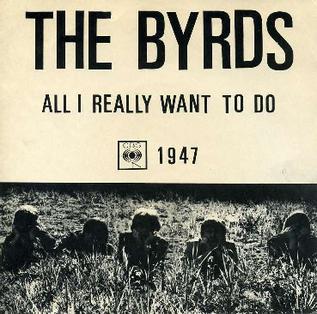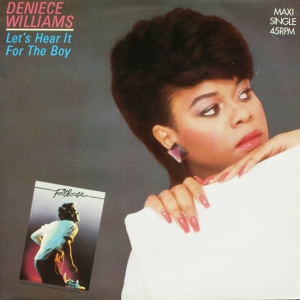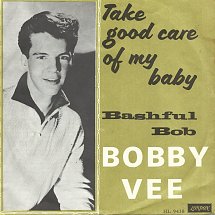
Inspired by the August 14 birthdays of The Byrds’ David Crosby, Scissor Sisters’ Ana Matronic, Steve Martin, Utah Saints’ Jez Willis, Dash Crofts, and Larry Graham; and the August 13 birthdays of Dan Fogelberg and The Undertones’ Feargal Sharkey.

Inspired by the August 14 birthdays of The Byrds’ David Crosby, Scissor Sisters’ Ana Matronic, Steve Martin, Utah Saints’ Jez Willis, Dash Crofts, and Larry Graham; and the August 13 birthdays of Dan Fogelberg and The Undertones’ Feargal Sharkey.

Inspired by the July 13 birthdays of The Byrds’ Roger McGuinn, Girls’ Christopher Owens, Leon Bridges, Cheech Marin, Jayne County, Gerald Levert and Ida Maria.

Inspired by the July 8 birthdays of Beck, Joan Osborne, Louis Jordan, Sky Ferreira, and Steve Lawrence and the July 7 birthdays of Ringo Starr, the Grass Roots’ Warren Entner, Mary Ford, Icona Pop’s Aino Jawo, and Weather Report’s Joe Zawinul.

Inspired by Black Music Month, LGBTQ Pride Month, the June 3 birthdays of Curtis Mayfield, Deniece Williams, Mott the Hoople’s Ian Hunter, C + C Music Factory’s David Cole, Suzi Quatro, Allen Ginsberg, Dan Hill, Boots Rudolph, Republica’s Saffron, Stereophonics’ Kelly Jones, and Beabadoobee, and the June 2 birthdays of The Rolling Stones‘ Charlie Watts, Chubby Tavares, Cypress Hill’s B-Real, Spandau Ballet’s Tony Hadley, Bangles’ Michael Steele, Jimmy Jones, Skillz, Otis Williams, David Dundas, Marvin Hamlisch, Sammy Turner, and Robin Lamont.

Inspired by the April 30 birthdays of Sugarhill Gang’s Wonder Mike, MC5’s Wayne Kramer, Bobby Vee, Travis $cott, Snap!’s Turbo B, Bon Iver’s Justin Vernon, Dresden Dolls’ Amanda Palmer, Johnny Horton, Mac Demarco, Santo & Johnny’s Johnny, and Broadway composer Sheldon Harnick.

Inspired by the April 20 birthdays of Luther Vandross, Hot Chip’s Alexis Taylor, Ecstasy Passion & Pain’s Barbara Roy, Johnny Tillotson and 420; the April 19 birthdays of Dickie Goodman, The Turtles’ Mark Volman, Tim Curry and New Seekers’ Eve Graham; and the April 18 birthdays of Onyx’s Fredro Starr and Aminé.

Inspired by the February 24 birthdays of N.E.R.D.’s Chad Hugo, Manfred Mann’s Paul Jones, M People’s Mike Pickering, George Thorogood, Rupert Holmes, Plastic Bertrand and Barry Bostwick.
June is LGBTQ+ Pride Month. Tune du Jour celebrates with this playlist consisting of two hundred songs by and/or about Ls, Gs, Bs, Ts and Qs. Happy Pride!
Click here to like Tunes du Jour on Facebook
Follow me on Twitter: @tunesdujour
Follow me on Instagram: @glennschwartz

No other pop song so thoroughly challenged and transformed the commercials laws and artistic conventions of its time, for all time.
– Rolling Stone, naming Bob Dylan’s “Like a Rolling Stone” the greatest song of all time
If it came out now, it would still be radical. For 1965, it was mind-blowing, as was its success. Six minutes long, sung by a guy who sounded nothing like the other singers on the radio, with confrontational often insulting lyrics. Somehow, it went all the way to #2 on the Billboard Hot 100, kept from the top spot by The Beatles’ “Help!” As Rolling Stone wrote, “Just as Dylan bent folk music’s roots and forms to his own will, he transformed popular song with the content and ambition of “Like a Rolling Stone.”
Thanks in part to “Like a Rolling Stone” and “Help!” and Motown and Stax and the Rolling Stones and other British Invasion acts, 1965 was one of the best years for pop music. Tunes du Jour celebrates Throwback Thursday with a second playlist of tracks from this stellar year (the first playlist can be found here), kicking off with a Bob Dylan record that changed the rules.
Click here to like Tunes du Jour on Facebook!
Follow me on Twitter: @TunesDuJour
Follow me on Instagram: @GlennSchwartz
For this week’s Throwback Thursday playlist, Tunes du Jour revisits the year 1965.
Click here to like Tunes du Jour on Facebook!
Follow me on Twitter: @TunesDuJour